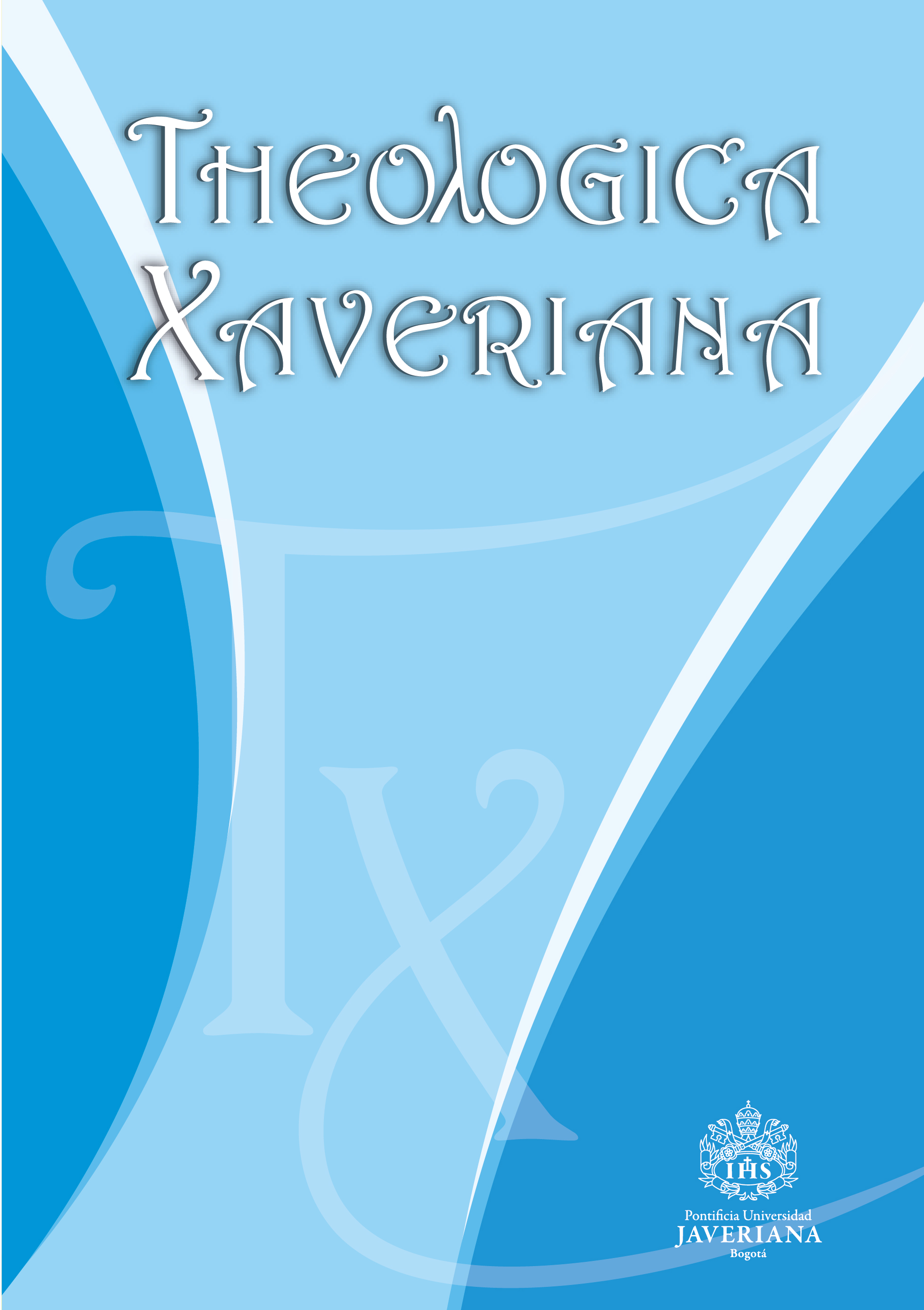Abstract
By taking from Scholasticism the subject of the relation between nature and grace, facing the challenges of our time, Karl Rahner forges the concept of “anonymous Christians”. Such concept, which the theologians of inter-religious dialogue considered outdated decades ago, appears to be relevant nowadays, due to the strengthening of new conservative currents within Catholicism. This article follows Rahner’s journey in order to address the ever renewed paths of divine grace, which seek to save all women and men, both inside and outside the world of religions.
Denzinger, Heinrich; Hünermann, Peter. Compêndio dos símbolos, definições e declarações de fé e moral (2.ed.). São Paulo: Loyola-Paulinas, 2013.
Duffy, Stephen J. “Experience of Grace.” En The Cambridge Companion to Karl Rahner, por D. Marmion y M. E. Hines, 43-62. Cambridge (U. K.)-New York (NY): Cambridge University Press, 2005Pio XII. “Carta encíclica Humani generis” (1950), Santa Sé, http://w2.vatican. va/content/pius-xii/pt/encyclicals/documents/hf_p-xii_enc_12081950_humani-generis.html (consultado el 13 de abril de 2018).
Rahner, Karl. “Anonymous Christians”. En Theological Investigations, por K. Rahner, Vol. 6, 390-398. Baltimore (MD): Helicon Press, 1969.
_____. “Christianity and the Non-Christian Religions”. En Theological Investigations, por K. Rahner, Vol. 5, 115-134. Baltimore (MD): Helicon Press, 1966.
_____. “Concerning the Relationship between Nature and Grace”. En Theological Investigations, por K. Rahner, Vol. 1, 297-317. Baltimore (MD): Helicon Press, 1961.
_____. Curso fundamental da fé. Introdução ao conceito de cristianismo (4.a ed.). São Paulo: Paulus, 2008.
_____. “Nature and Grace”. En Theological Investigations, por K. Rahner, Vol. 4, 165-188. Baltimore (MD): Helicon Press, 1966.
_____. Nature and Grace. Dilemmas in the Modern Church. New York (NY): Sheed and Ward, 1964.
_____. “Reflections on the Experience of Grace”. En Theological Investigations, por K. Rahner, Vol. 3, 86-90. Baltimore (MD): Helicon Press, 1967.
_____. “Reflections on the Unity of the Love of Neighbour and the Love of God”. En Theological Investigations, por K. Rahner, Vol. 6, 231-249. Baltimore (MD): Helicon Press, 1969.
_____. “The Church and Atheism”. En Theological Investigations, por K. Rahner, Vol. 21, 137-150. New York (NY): Crossroad, 1988.
_____. “The Future of Christian Communities”. En Theological Investigations, por K. Rahner, Vol. 22, 120-133. New York (NY): Crossroad, 1991.
Ratzinger, Joseph. “Necessita della missione della Chiesa nel mondo”. En La fine della Chiesa come societa perfetta, por M. Cuminetti y F. V. Joannes, 65-77. Verona: Mondadori, 1968.
Scotus, Ioannes Duns. “Ordinatio”. In Opera omnia. Vols. 9-10. Roma: Typis Polyglottis Vaticanae, 2006-2007.
Teixeira, Faustino. “Karl Rahner e as religiões”. En Karl Rahner em perspectiva, organizado por Pedro Rubens F. de Oliveira y Claudio Paul, 243-262. São Paulo: Loyola, 2004.
Vandervelde, George. “The Grammar of Grace. Karl Rahner as a Watershed in Contemporary Theology”. Theological Studies 49 (1988): 445-459.
Wandinger, Nikolaus. “Karl Rahner on Nature and Grace. A Journey through His Early Articles”. http://www.uibk.ac.at/theol/leseraum/texte/341.html (consultado el 11 de abril de 2018).
This journal is registered under a Creative Commons Attribution 4.0 International Public License. Thus, this work may be reproduced, distributed, and publicly shared in digital format, as long as the names of the authors and Pontificia Universidad Javeriana are acknowledged. Others are allowed to quote, adapt, transform, auto-archive, republish, and create based on this material, for any purpose (even commercial ones), provided the authorship is duly acknowledged, a link to the original work is provided, and it is specified if changes have been made. Pontificia Universidad Javeriana does not hold the rights of published works and the authors are solely responsible for the contents of their works; they keep the moral, intellectual, privacy, and publicity rights.
Approving the intervention of the work (review, copy-editing, translation, layout) and the following outreach, are granted through an use license and not through an assignment of rights. This means the journal and Pontificia Universidad Javeriana cannot be held responsible for any ethical malpractice by the authors. As a consequence of the protection granted by the use license, the journal is not required to publish recantations or modify information already published, unless the errata stems from the editorial management process. Publishing contents in this journal does not generate royalties for contributors.



